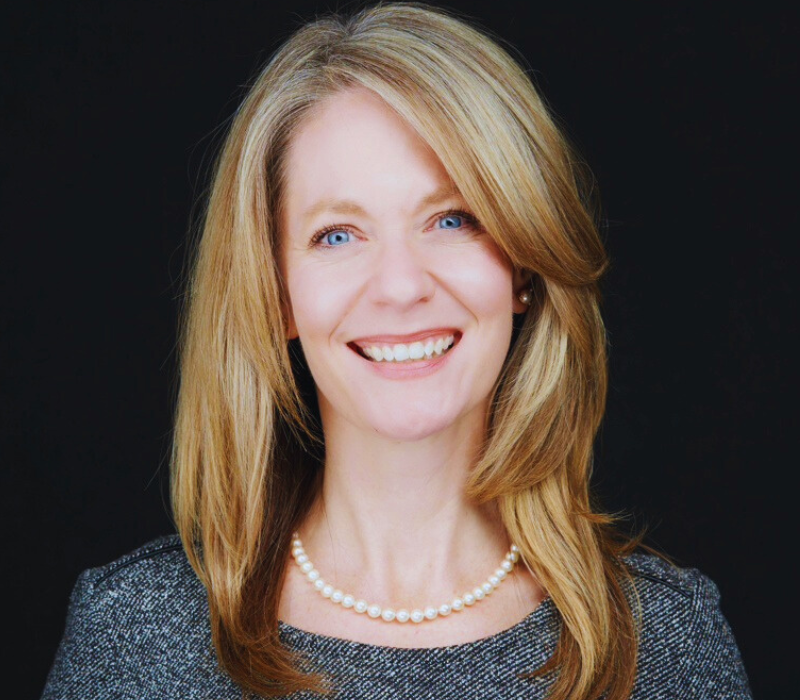Editor’s note: As part of Xpress’ monthlong Sustainability Series, we reached out to all candidates running for Buncombe County Board of Commissioners as well as Asheville City Council. Conversations with those who participated will appear throughout our four April issues.
Democrat Amanda Edwards announced in October her bid for chair of the Buncombe County Board of Commissioners, where she currently serves as a commissioner for District 3. If elected in November, Edwards would become the first female chair. She is running against former Buncombe County Sheriff Van Duncan.
A longtime resident of Buncombe County, Edwards is the executive director of A-B Tech Foundation, which raises funds for community college students.
The Buncombe County Board of Commissioners meets on the first and third Tuesday of each month. Commissioners vote on policies related to property taxes, zoning, education and more. The chair presides over these meetings.
Xpress: What misconceptions do community members have about the role of the Buncombe County Board of Commissioners chair?
Edwards: That question might most accurately be answered by our chair [Brownie Newman], who has served us since 2016, and by surveying the public about their perceptions and analyzing the responses to determine which interpretations are misconceptions. I’d be interested to know. In general, as a person living through this unprecedented time when people are feeling lonelier and more disconnected than ever — often due to technology replacing the human connections that would ordinarily nourish us — I’m noticing there’s very little information being shared during this so-called “information age.” We seem to have gotten in the habit of skipping the steps of researching authoritative sources, identifying root issues and engaging in thoughtful problem-solving, which requires listening and the will to learn and adjust your position based on new information.
What can local leaders do to promote thoughtful community dialogue about complex and difficult topics such as the opioid crisis, crime, housing and health care?
A thoughtful community dialogue is a respectful exchange of thoughts among people demonstrating a high regard for the dignity of all and demonstrating that they are seeking to listen, to learn and to share knowledge. That is the kind of dialogue through which we recognize common goals and collaboratively choose which ideas to put to use toward achieving our common goals.
I’m known for my inclusive, accountable, transparent leadership and fostering productive and compassionate dialogues. I draw on my lived experiences, my career in human services and education, my years in service as a commissioner, and my drive to deliver real solutions, efficiently and respectfully. As chair of the commission, my responsibility will be greater: It will be my responsibility to facilitate thoughtful communications among commissioners and between the public and the Board of Commissioners. I believe all leaders at all levels bear a similar responsibility in a democracy.
What can the city and county do to help small businesses thrive?
Residents tell me that they want employers to offer high-wage jobs with great health care and retirement packages, family leave policies and good work/life balance through paid time off. Neighbors who are business owners tell me that they struggle to pay a living wage, and many can’t budget for benefits. I want to be supportive of small businesses that employ local people and want their employees to thrive. The county can ensure that businesses have the tools to bid on procurement contracts. Small businesses thrive when they have an available skilled workforce and when their operating costs are competitive. To that end, we can lobby the N.C. General Assembly to take strategic actions that will decrease the cost of living and increase access to higher wages and industry-specific education and higher education; provide high quality child care; fully fund our pre-K through college public schools; expand affordable broadband internet.
In your opinion, is it sustainable to operate two school districts? Why or why not?
The real question is: Why doesn’t the N.C. General Assembly ensure that all school systems are sustainable by adequately funding and supporting public schools in every community? It is within their power and budget to fully fund all aspects of our public schools. Instead, the General Assembly consistently underfunds our schools. It hits hard here because our housing costs are rising faster than in other parts of the state. The General Assembly is going to make the decision on whether or not to combine the Buncombe County and Asheville City school districts. We have no say. In the meantime, the topic will be used to pit elected officials, teachers, students, parents, community members and administrators against each other. The General Assembly passed a law requiring the districts to hire a contractor to evaluate what a merger could look like. That report is due Feb. 15, 2025.
To learn more about Edwards, visit avl.mx/dii.






Best of luck Amanda… you’ll make an excellent chair. And yeah, the deluge of disinformation…. sigh. We’re in big big trouble in that regard.